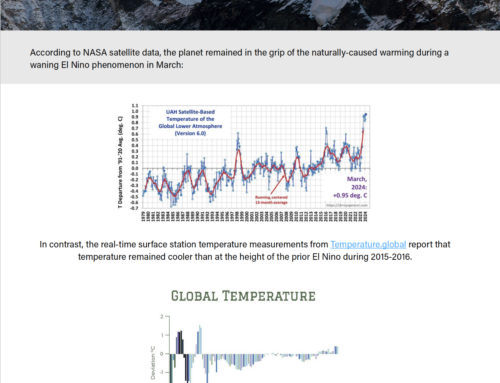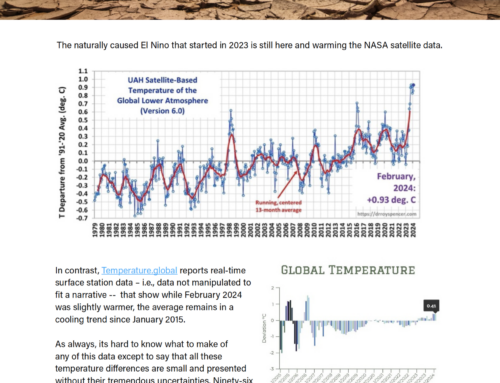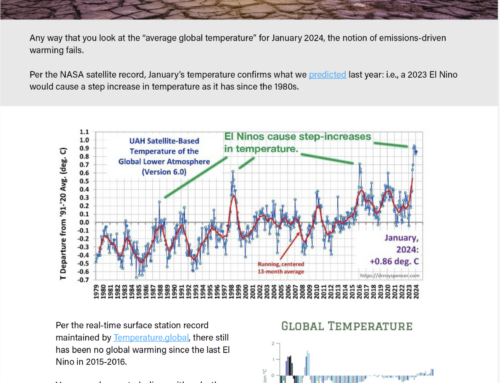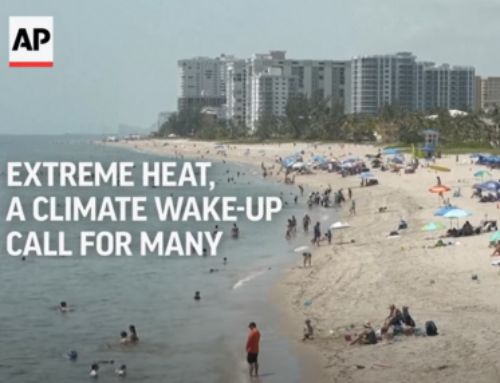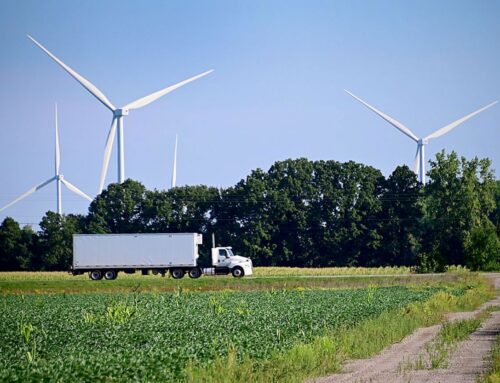For Immediate Release:
June 16, 2016
Contact:
Craig Richardson
[email protected]
703-981-5553
AZ Superior Courts Sides with E&E Legal and Orders UofA to Disclose ‘Climate’ Related Public Records Including Correspondence of Longtime Activists Hughes and Overpeck
Washington, DC – On June 14, 2016, the Superior Court of Pima County, Arizona, the Honorable Judge James Marner, ordered the University of Arizona to disclose certain “climate” related public records sought by the Energy & Environment Legal Institute (E&E Legal), correspondence of two U of A academics, Malcolm Hughes and Jonathon Overpack, who featured prominently in the 2009 and 2011 “ClimateGate” releases of public records.
The University had withheld these records, dating from 11 to 15 years ago, from public view since a 2011 Arizona Public Records Law request. The request deals predominantly with climate change communications and specifically should provide further insight into development of the so-called “hockey stick” graph, activism by university professors using public resources, and the Intergovernmental Panel on Climate Change (IPCC).
The 2009 and 2011 “ClimateGate” releases of public records also were subject to freedom of information laws, and the subject of stonewalled requests prior to being leaked apparently by a whistleblower concerned over those same efforts. One of these U of A employees was a co-author of a particularly controversial paper at the center of these revelations, with his lead co-author, Michael Mann, describing the activist climate agenda in several emails as “the cause”. The other U of A employee has been at the center of this “cause” by his activism relating to and arising out of his work at the University, using University resources.
As such, these records likely include significant overlap with those withheld for years during the University of Virginia’s decade-long efforts to keep its own involvement in climate alarmism from the public.
Commenting on the decision, Dr. David Schnare, E&E Legal’s General Counsel, and lead counsel in the case, stated: “This is a landmark case that address the joint needs to ensure transparency while preventing harassment of academics. Academics have increasingly become a significant part of the policy-making process, requiring significant transparency in their activities. Judge Marner struck a wise balance.”
Schnare continued, “The decision is a straight-forward and clear factual and legal ruling, the result of deep and thoughtful efforts by Judge Marner to sort through this difficult issue, which are plainly evident in the hearing transcripts. Those hearings and the briefing in this case helped refine the arguments central to striking the proper balance of scrutiny that comes with public funding, as well as concerns inherent in the transparency which is essential to research, particularly research that serves as the basis for economically and socially significant policies.”
The Court found that the University did not “specifically identify” any “substantial and/or irreparable private or public harm” that would come from releasing the documents; without such a harm, the legislature’s clear and overriding preference for transparency and public accountability prevailed.
The Court rejected the University’s argument that “release of the requested emails would set a dangerous precedent that would seriously and negatively impact higher education in Arizona and throughout the country.” The Court did not “ignore the repeated ‘chilling effect” concerns” raised by the University, but concluded that “potential harm is speculative at best, and does not overcome the presumption favoring disclosure of public records containing information about a topic as important and far-reaching as global warming and its potential causes.”
The Court also addressed the University’s arguments regarding protection of academic freedom, holding “they go beyond championing academic freedom and, in effect, promote the creation of an academic privilege exception to
Upon receipt, E&E Legal will begin review of the more than 1,700 emails and other documents, after which it will make them publicly available to all interested in the history of this important period during which academics demonstrated significant influence on the public discussion on global warming and the human influence thereon, and the often highly political “cause” being undertaken by academics, the IPCC and others.
The Energy & Environment Legal Institute (E&E Legal) is a 501(c)(3) organization engaged in strategic litigation, policy research, and public education on important energy and environmental issues. Primarily through its petition litigation and transparency practice areas, E&E Legal seeks to correct onerous federal and state policies that hinder the economy, increase the cost of energy, eliminate jobs, and do little or nothing to improve the environment.
-30-


